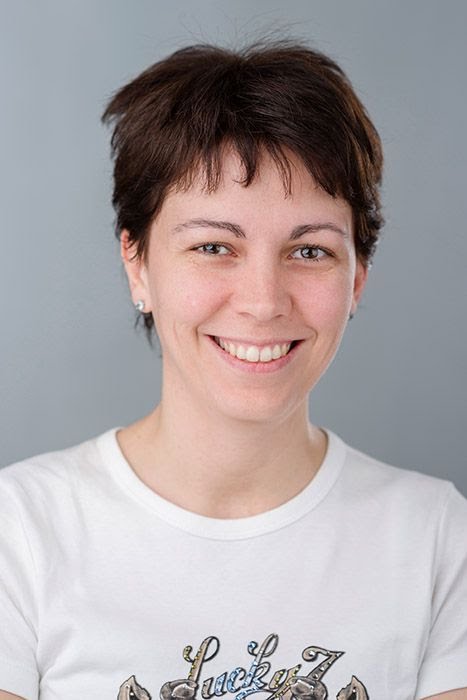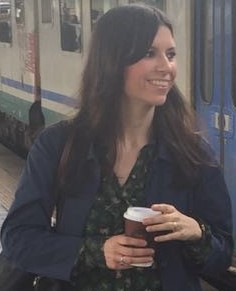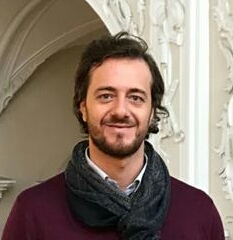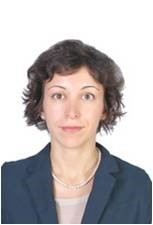Studying at the University of Verona
Here you can find information on the organisational aspects of the Programme, lecture timetables, learning activities and useful contact details for your time at the University, from enrolment to graduation.
Academic calendar
The academic calendar shows the deadlines and scheduled events that are relevant to students, teaching and technical-administrative staff of the University. Public holidays and University closures are also indicated. The academic year normally begins on 1 October each year and ends on 30 September of the following year.
Course calendar
The Academic Calendar sets out the degree programme lecture and exam timetables, as well as the relevant university closure dates..
| Period | From | To |
|---|---|---|
| primo semestre (lauree) | Sep 28, 2020 | Dec 23, 2020 |
| secondo semestre (lauree) | Feb 15, 2021 | Jun 1, 2021 |
| Session | From | To |
|---|---|---|
| sessione invernale | Jan 11, 2021 | Feb 12, 2021 |
| sessione estiva | Jun 7, 2021 | Jul 23, 2021 |
| sessione autunnale | Aug 23, 2021 | Sep 17, 2021 |
| Session | From | To |
|---|---|---|
| sessione autunnale (validità a.a. 2019/20) | Dec 9, 2020 | Dec 11, 2020 |
| sessione invernale (validità a.a. 2019/20) | Apr 7, 2021 | Apr 9, 2021 |
| sessione estiva (validità a.a. 2020/21) | Sep 6, 2021 | Sep 8, 2021 |
| Period | From | To |
|---|---|---|
| Vacanze di Natale | Dec 24, 2020 | Jan 6, 2021 |
| Vacanze di Pasqua | Apr 3, 2021 | Apr 6, 2021 |
| Vacanze estive | Aug 9, 2021 | Aug 15, 2021 |
Exam calendar
Exam dates and rounds are managed by the relevant Economics Teaching and Student Services Unit.
To view all the exam sessions available, please use the Exam dashboard on ESSE3.
If you forgot your login details or have problems logging in, please contact the relevant IT HelpDesk, or check the login details recovery web page.
Should you have any doubts or questions, please check the Enrollment FAQs
Academic staff
 alessandro.barbazeni@univr.it
alessandro.barbazeni@univr.it
 paolo.braguzzi@univr.it
paolo.braguzzi@univr.it
 laura.chiaramonte@univr.it
laura.chiaramonte@univr.it
 stefano.gatti@univr.it
stefano.gatti@univr.it
Study Plan
The Study Plan includes all modules, teaching and learning activities that each student will need to undertake during their time at the University.
Please select your Study Plan based on your enrollment year.
1° Year
| Modules | Credits | TAF | SSD |
|---|
2° Year activated in the A.Y. 2021/2022
| Modules | Credits | TAF | SSD |
|---|
3° Year activated in the A.Y. 2022/2023
| Modules | Credits | TAF | SSD |
|---|
1 module to be chosen between the following1 module to be chosen between the following| Modules | Credits | TAF | SSD |
|---|
| Modules | Credits | TAF | SSD |
|---|
| Modules | Credits | TAF | SSD |
|---|
1 module to be chosen between the following1 module to be chosen between the following| Modules | Credits | TAF | SSD |
|---|
Legend | Type of training activity (TTA)
TAF (Type of Educational Activity) All courses and activities are classified into different types of educational activities, indicated by a letter.
Financial Intermediation and Fundraising (2022/2023)
Teaching code
4S008957
Teacher
Coordinator
Credits
6
Language
Italian
Scientific Disciplinary Sector (SSD)
SECS-P/11 - FINANCIAL MARKETS AND INSTITUTIONS
Period
Primo semestre (lauree) dal Sep 19, 2022 al Jan 13, 2023.
Learning objectives
The course aims to provide basic knowledge of financial intermediation. Therefore, the course investigates the structure of the financial system and the functions carried out by financial intermediaries, taking into account the regulatory context.
Students will learn concepts and methodologies necessary to analyze the main dynamics that characterize the financial intermediation activity.
At the end of the course, students will be able to know and understand the functioning mechanisms of the financial system and the activities performed by the main types of financial intermediaries operating in it, with hints also to their role in providing financial support to non financial firms.
Prerequisites and basic notions
Although there are no prerequisites, basic knowledge of Business Administration and Financial Mathematics are strongly recommended.
Program
Functions, structure, and arrangement of the financial system. Financial contracts. The risks of financial intermediation
“Financial balance”: Meaning and determination procedures. “Financial balances” of institutional sectors. Direct and indirect funding channel
Money and the payment system.
Types and categorization of financial institutions. Banks, banking activity, banking products and services and funding activity. Other non-banking financial institutions.
Insurance companies: Management and specific features. Insurance contracts. Insurance life and non-life products.
Regulation and supervision of the financial system: Objectives, tools and supervisory authorities
Bibliography
Didactic methods
Lectures by the teacher along with lectures by experts working in the financial system and practitioners.
The course will be held in Italian.
Learning assessment procedures
Written exam, comprising 5 open questions and/or exercises, to be completed in 90 minutes.
The exam will cover the whole syllabus for the course and will be held in Italian .
Other details on the exam will be posted on the e-learning platform for the course.
Evaluation criteria
The exam aims at ascertaining the knowledge acquired by the students about the functioning of the financial system as well as its regulation and supervision. Furthermore, students will be assessed on their ability to critically analyze the dynamics and management complexities of financial institutions.
Each answer is scored 0-6, also based on the degree to which each topic is deepened.
Criteria for the composition of the final grade
.
Exam language
Italiana
Type D and Type F activities
| years | Modules | TAF | Teacher |
|---|---|---|---|
| 1° | Future matters | D |
Alessandro Bucciol
(Coordinator)
|
| 1° | Future matters | D |
Alessandro Bucciol
(Coordinator)
|
| years | Modules | TAF | Teacher |
|---|---|---|---|
| 1° | Discovering fair trade | D |
Angelo Bonfanti
(Coordinator)
|
| 1° | Business skills in action | D |
Angelo Bonfanti
(Coordinator)
|
| 1° | Design and Evaluation of Economic and Social Policies | D |
Federico Perali
(Coordinator)
|
| 1° | Public debate and scientific writing - 2020/2021 | D |
Martina Menon
(Coordinator)
|
| 1° | Wake up Italia - 2020/2021 | D |
Sergio Noto
(Coordinator)
|
| years | Modules | TAF | Teacher | |
|---|---|---|---|---|
| 1° | Ciclo di video conferenze: "L’economia del Covid, Verona e l’Italia. Una pandemia che viene da lontano?" - 2020/21 | D |
Sergio Noto
(Coordinator)
|
|
| 1° | Ciclo tematico di conferenze (on-line): “Come saremo? Ripensare il mondo dopo il 2020” - 2020/21 | D |
Federico Brunetti
(Coordinator)
|
|
| 1° | Marketing plan - 2020/21 | D |
Virginia Vannucci
(Coordinator)
|
|
| 1° 2° | Programming in Matlab | D |
Marco Minozzo
(Coordinator)
|
|
| 1° 2° 3° | Data Analysis Laboratory with R (Verona) | D |
Marco Minozzo
(Coordinator)
|
|
| 1° 2° 3° | Data Visualization Laboratory | D |
Marco Minozzo
(Coordinator)
|
|
| 1° 2° 3° | Python Laboratory | D |
Marco Minozzo
(Coordinator)
|
|
| 1° 2° 3° | Data Science Laboratory with SAP | D |
Marco Minozzo
(Coordinator)
|
|
| 1° 2° 3° | Advanced Excel Laboratory (Verona) | D |
Marco Minozzo
(Coordinator)
|
|
| 1° 2° 3° | Excel Laboratory (Verona) | D |
Marco Minozzo
(Coordinator)
|
|
| 1° 2° 3° | Programming in SAS | D |
Marco Minozzo
(Coordinator)
|
|
Career prospects
Module/Programme news
News for students
There you will find information, resources and services useful during your time at the University (Student’s exam record, your study plan on ESSE3, Distance Learning courses, university email account, office forms, administrative procedures, etc.). You can log into MyUnivr with your GIA login details: only in this way will you be able to receive notification of all the notices from your teachers and your secretariat via email and soon also via the Univr app.


 045 802 8292
045 802 8292



























